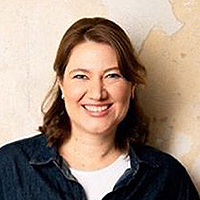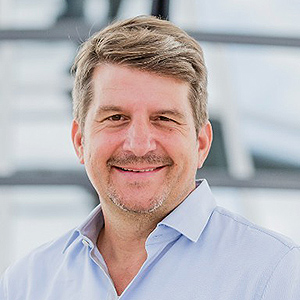EU-US Trade Deal, Chancellor Merz’s Spending Pivot, Media Freedom in The Hague, Nordic Embassy Canteen, EU Digital Sovereignty, Eurostat Trade Report, Pension Fund Investments, Energy Regionalism in Asia, Chatham House on Global Trade and Technology
Which international city recently hosted a global summit on media freedom and journalist protection, co-sponsored by Germany and focusing on digital threats to press independence?
The Hague
 Dear Readers,
Dear Readers,
As August unfolds, we extend our warmest wishes to those enjoying a well-deserved summer break—may your days be relaxing and filled with sunshine.
This week, we mark the national days of Jamaica, Bolivia, Côte d’Ivoire, and Singapore—an occasion to celebrate enduring partnerships and the shared values that bring our communities together.
In this edition, we spotlight the recent Global Summit on Media Freedom in The Hague, co-hosted by Germany. Marco Vollmar from the International Journalists’ Programmes offers valuable perspectives on how cross-border cooperation can bolster independent journalism worldwide. You will also find analysis of major developments in European Union trade and capital flows, an overview of the new transatlantic trade agreement, and insights into Germany’s evolving economic strategy under Chancellor Merz.
Finally, for those in Berlin, we suggest discovering the Nordic Embassies’ canteen—a unique public dining venue that marries culinary delights with cultural exchange.
We wish you an engaging read.
Warm regards,
Sigrid Arteaga
International exchange with journalists
Marco Vollmar, in addition to his main job as a partner at MSL, is the head of the Southern Africa Program at the International Journalists‘ Programs (IJP). IJP supports young journalists and organizes exchanges between different countries and Germany. Marco studied political science, history, and economics in Bonn and Paris, and later worked for ARD, Deutsche Welle, and the WWF.

Given the rising political polarization globally, how does the non profit organization International Journalists Prorogrammes (IJP e.V) ensure that its journalist exchange programs do not inadvertently reinforce existing biases or echo chambers among participants?
IJP counters the risks of bias and echo chambers by designing its programs around diversity, intercultural immersion, reflective practice, and long-term engagement. These elements create the conditions for journalists to broaden their horizons, challenge their assumptions, and report with greater depth, accuracy, and fairness—a critical function in an increasingly polarized media environment.
IJP itself does not promote a particular political agenda, focusing instead on the principles of press freedom, journalistic integrity, and mutual understanding. This neutrality helps create a space where participants can engage without feeling pressured to conform to a dominant narrative.
What are the biggest challenges or limitations you see in fostering truly independent journalism through international exchange programs, especially when political and media freedoms vary greatly across countries?
While exchange programs like IJP play an important role in building journalistic solidarity and fostering global understanding, their ability to foster truly independent journalism is constrained by real-world political, structural, and cultural obstacles. IJP tries to deepen its impact through prioritizing long-term engagement and alumni support, ensuring diverse and inclusive participation, and advocating for press freedom and institutional change alongside journalist training.
What is the single most important skill or mindset you recommend to journalists applying for IJP programmes to ensure they can adapt quickly and build enduring professional relationships abroad?
The single most important mindset for journalists applying to IJP programmes is: Cultural humility combined with professional curiosity.
What is one international event or journalism-related initiative you have seen abroad that you wish Berlin would host or adopt?
One standout international initiative that Berlin could greatly benefit from adopting or hosting is: The International Journalism Festival (IJF) held annually in Perugia, Italy. The Festival is renowned for being completely free and open to the public, which democratizes access to high-level discussions. A truly global platform where journalists, tech experts, activists, academics, and media entrepreneurs from all backgrounds come together.
DW’s Global Media Forum in Bonn is also excellent. It offers journalists a rare combination of global access, professional growth, inspiration, and advocacy—all in a setting that encourages dialogue and innovation. It’s especially valuable for those who want to engage beyond national narratives, shape the future of journalism, and build a resilient international network.
Eurostat Report July 2025: Trade Surpluses and Sectoral Dynamics in the Euro Area and EU
The July 2025 Eurostat report highlights the euro area’s trade resilience amid global uncertainties. In May 2025, the euro area’s trade surplus rose to €16.2 billion, driven by strong performance in chemicals and steady gains in machinery and vehicles, alongside a reduced energy deficit. The EU overall had a €13.1 billion surplus, up from €8.9 billion the previous year, despite a decline in surpluses in machinery and vehicles. This reflects a complex trade environment where energy import challenges persist but are balanced by robust manufacturing exports. Policymakers should focus on enhancing competitiveness in key sectors and advancing energy diversification and efficiency to maintain economic stability and strengthen Europe’s global position. You can explore the detailed data and analysis on Eurostat.
At the Conceptual Crossroads of Politics and Technology: An Exploration Into EU Digital Policy
The article examines the EU’s pursuit of digital sovereignty as a contest over core political concepts such as rights, governance, and agency within rapidly evolving technology policy. Through a conceptual politics lens, it demonstrates how policy debates both reflect and reshape these concepts, amid tensions between forward-looking visionary discourse and growing technocratic approaches. Analyzing key cases like digital rights and blockchain, the study reveals that EU policy frames technological innovation as inevitable and progressive, which paradoxically limits democratic debate and strengthens technocratic dominance. This dynamic underscores the challenges in balancing innovation with inclusive governance in the EU’s digital strategy. For a deeper exploration of how the EU’s conceptual politics shape both its governance models and its digital future, see the full Cogitatio article.
Where do insurance firms and pension funds invest?
This episode of Bruegel’s „The Sound of Economics“ podcast examines the investment patterns of insurance firms and pension funds, crucial providers of long-term capital for Europe’s economic growth and infrastructure. Featuring experts from the European Insurance and Occupational Pensions Authority (EIOPA) and Bruegel researchers, the dialogue explores where these funds invest globally, how much remains within Europe, and the policy challenges in promoting patient, sustainable capital flows to address the continent’s investment needs. The discussion underscores the role of effective regulation and transparency in enhancing public trust and optimizing capital markets to deliver lasting social and economic value. For the full episode, listen directly on Bruegel’s website.
Germany's Spending Gamble: Chancellor Merz's Bold Investment to Revive Economy and Defend Europe
The Financial Times documentary “Germany’s Spending Gamble” documents Chancellor Friedrich Merz’s historic 2025 move to loosen the country’s strict constitutional debt brake, unlocking €500 billion for urgent investments in infrastructure and defense. Facing decades of austerity, crumbling schools, roads, and transport, alongside growing external security threats, Germany is betting on large-scale public spending to modernize its economy and military capabilities. This decisive break from fiscal conservatism aims to stimulate growth, enhance state effectiveness, and secure Europe against geopolitical uncertainties. However, the success of this gamble depends on overcoming bureaucratic hurdles, resource constraints, demographic pressures, and managing political opposition, especially from far-right factions ready to capitalize on any failures. Germany’s spending pivot may reshape both its own future and Europe’s strategic and economic landscape. For more, see the full documentary on the Financial Times YouTube-Channel.
- A Franco-German Initiative to Strengthen Europe’s Start-up Ecosystem. diplomacy.berlin
- China pledges support for peaceful development in Horn of Africa. scmp.com
- Tanzania bans foreigners from key businesses, risks regional fallout. africanews.com
- The rightwing media stoking culture wars in Germany. ft.com
- Lithuanian PM resigns amid probe into business dealings. politico.eu
The geopolitics of energy regionalism in Central Asia and South-east Asia
The article explores how energy infrastructures have become focal points for both competition and cooperation among major powers in these strategically significant regions. It highlights the contrasting dynamics where Central Asia experiences significant collaboration between the US, Japan, Russia, and China within multilateral and bilateral frameworks, while South-East Asia sees limited great power cooperation on energy issues. The study emphasizes that energy regionalism arises not only from rivalries but also from overlapping strategic interests, with regional agency playing a crucial role in shaping energy transitions and enhancing stability amid great power competition. This comparative analysis sheds light on the complex interplay between historical legacies, geopolitical ambitions, and regional strategies in shaping Asia’s energy future. To read further, see the full article in Oxford Academic.
US-EU Trade Deal: Framework Agreement Caps EU Tariffs at 15% while Boosting Strategic Investments
The 2025 US-EU trade deal, announced by President Donald Trump and European Commission President Ursula von der Leyen, sets a 15% tariff on nearly all EU exports to the US, including automobiles and manufactured goods, significantly lower than the previously threatened 30%. Key sectors like pharmaceuticals, semiconductors, timber, and copper will see phased tariff reductions, while tariffs on steel and aluminium remain at 50%, with plans to transition to a quota system. The EU commits to purchasing $750 billion in US energy products over three years and investing $600 billion in the US by 2029. The deal aims to reduce trade tensions and provide stability, but has faced criticism in Europe for its asymmetric terms that may impact EU competitiveness, particularly affecting German industries. For more details, see the full Reuters coverage here.
Chatham House, the Royal Institute of International Affairs based in London, is a leading global think tank offering in-depth analysis and expert insights on international trade, economic policy, and emerging technologies. It convenes policymakers, business leaders, and academics through signature events like the annual Global Trade Conference and London Conference, addressing critical issues such as economic security, geopolitical shifts, and the impacts of transformative technologies on global governance. Through its research, publications, and open events, Chatham House provides evidence-based perspectives to inform policy decisions and foster international cooperation amid complex global challenges. For comprehensive policy analysis and updates, explore Chatham House’s resources and follow its engagements online on Facebook, X, and LinkedIn.
18th International Conference on Modern Research in Management, Economics and Accounting (8-10 August)
Join the 18th edition of this prestigious international conference, taking place from August 8 to August 10, 2025, dedicated to the latest trends and advancements in management, economics, accounting, and business. MEACONF 2025 provides a global forum for academics, researchers, industry professionals, and leaders to share original research, discuss innovative concepts, and network. Topics include management, economics, business, finance, and more, curated by a scientific committee to ensure high-quality discussions. For more details and registration, visit MEACONF 2025.
Lunch with a View – The Nordic Embassies Canteen: Located within the Felleshus, the shared embassy building of the Nordic countries in Tiergarten, this canteen offers a thoughtful and well-executed lunch experience. Open to the public on weekdays from 13:00 to 15:00, the menu changes daily and includes a range of international dishes, often with vegetarian options and a focus on seasonal ingredients. Guests can also enjoy a fresh salad bar and homemade desserts. While not exclusively Nordic in style, the quality and presentation are consistently high. Seating is on a walk-in basis, and the setting offers a light-filled dining area with views of the surrounding architecture. Before leaving, visitors may also explore the public exhibition on the first floor. (Felleshus, Rauchstraße 1, 10787 Berlin / Monday–Friday, 13–15)
Discover Berlin’s Finest Coffee at Home: Berliner Kaffeerösterei: Treat yourself to an afternoon pick-me-up with Berliner Kaffeerösterei—a standout in Germany’s specialty coffee scene. Whether you’re seeking something fruity and bright or bold and chocolatey, you’ll find single-origin coffees and expertly crafted blends, with beans ethically sourced from around the globe. Explore their online store for fresh beans, convenient subscription boxes, stylish brewing gear, and beautiful gift sets. Treat yourself or a loved one to the authentic taste of Berlin’s finest coffee—brewed just the way you like it.
